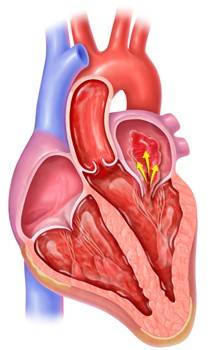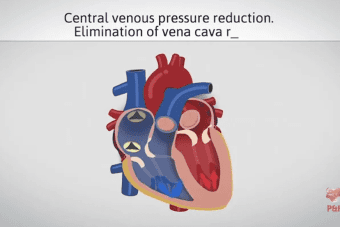Mitral regurgitation* (or “MR”) is a condition affecting one of the valves in your heart, the mitral valve#. The valves in your heart control the flow of blood through the four chambers of your heart. Each heart valve is made up of thin, but strong flaps of tissue. As blood flows through the four chambers of the heart, the valves open and close to ensure that blood flows in the right direction.
The mitral valve# is located between your heart’s two left chambers and allows blood to flow forward through your heart during a normal heart- beat. When the mitral valve# fails to close completely, blood flows backward in the opposite direction. This backward flow is called mitral regurgitation.
Mitral regurgitation places an extra burden on the heart, lungs, and other organs. Some patients may develop an enlarged heart because it has to work harder to pump blood through the body. Eventually, this extra burden can cause other, more serious problems to your heart (such as heart failure) and may result in irregular heart beats, stroke@, and even sudden death.

Image of 4-chamber heart affected by mitral regurgitation.
Yellow arrows show blood flowing backwards.
*Mitral regurgitation = A disorder of the heart in which the mitral valve does not close properly when the heart pumps blood, and blood flows backwards.
#mitral valve = A valve in the heart that lies between the left atrium and the left ventricle. The valve allows oxygen-rich blood to flow into the left ventricle, and then closes to prevent blood flowing back.
@stroke = The rapid loss of brain function(s) due to irregularities in the blood supply to the brain. This can be due to lack of blood flow, caused by blockage, or to hemorrhage (bleeding).


























